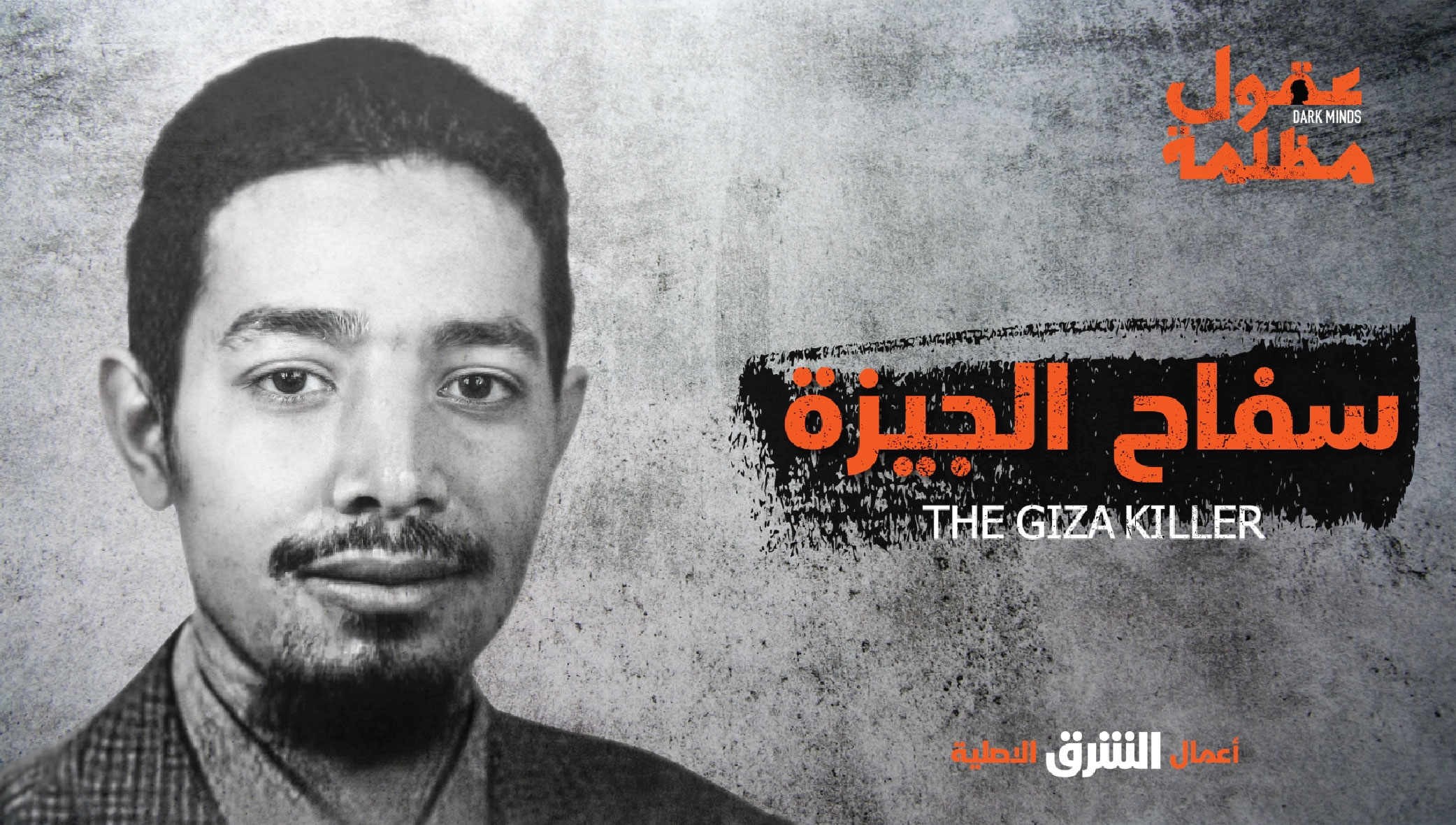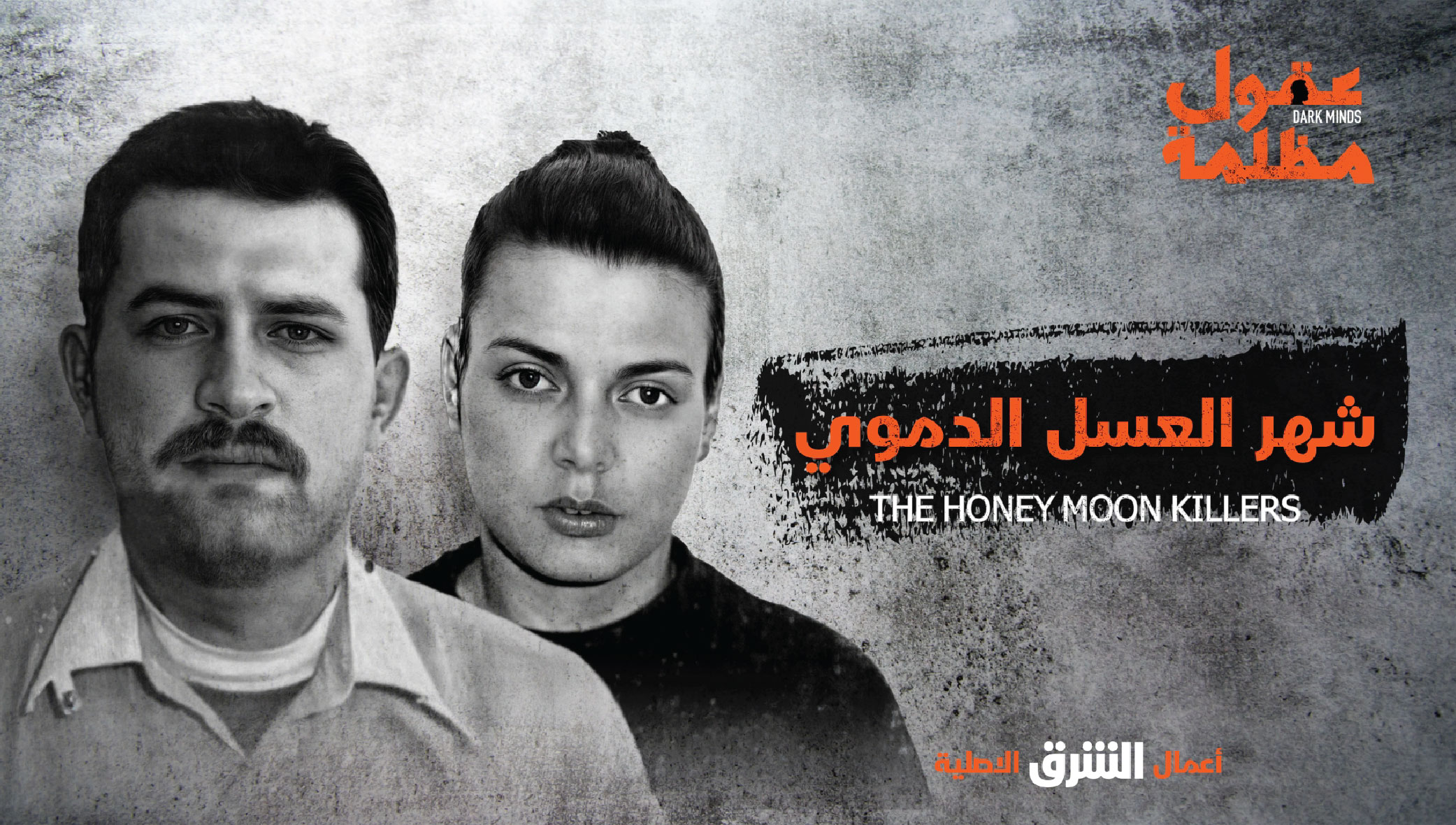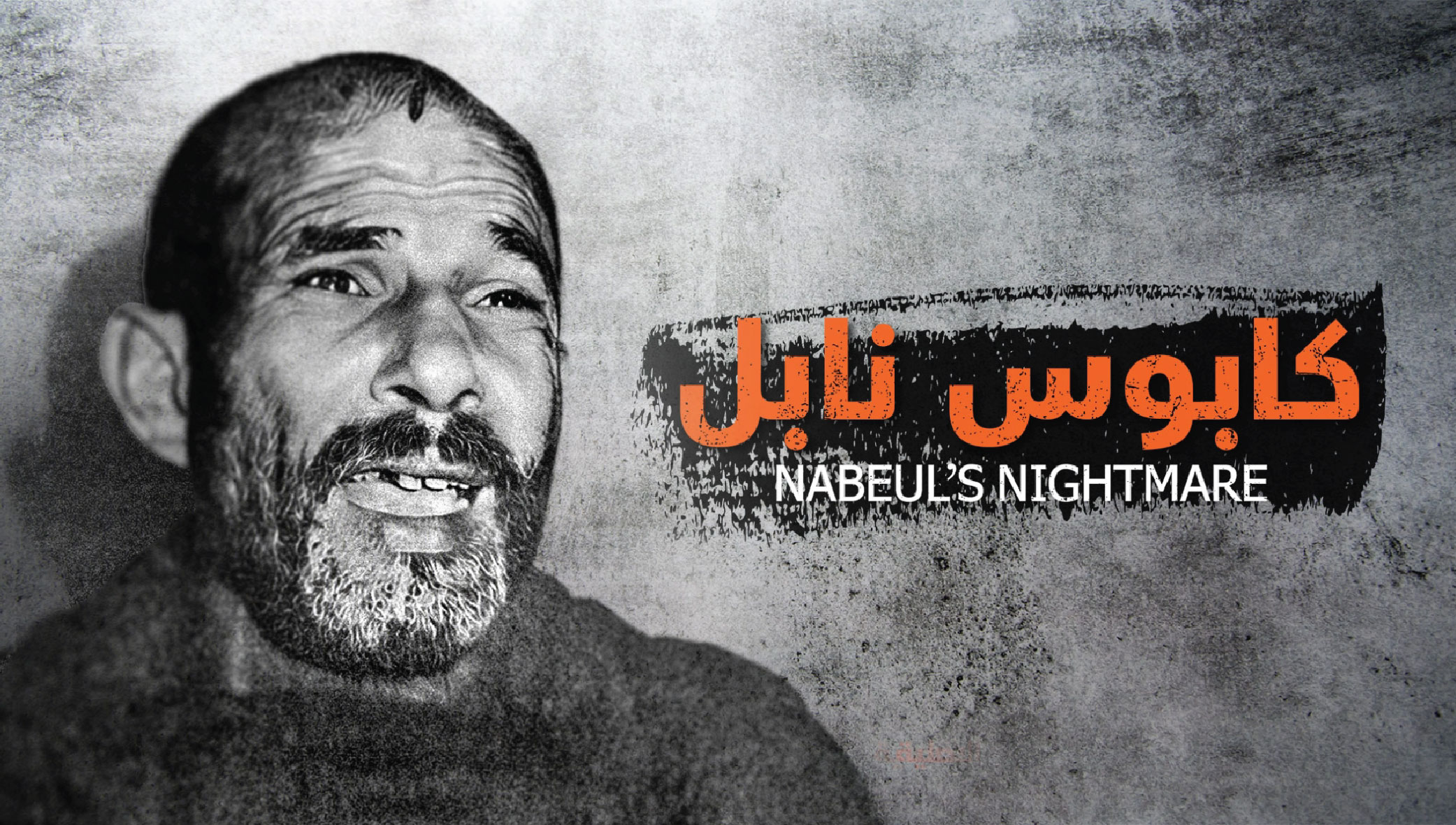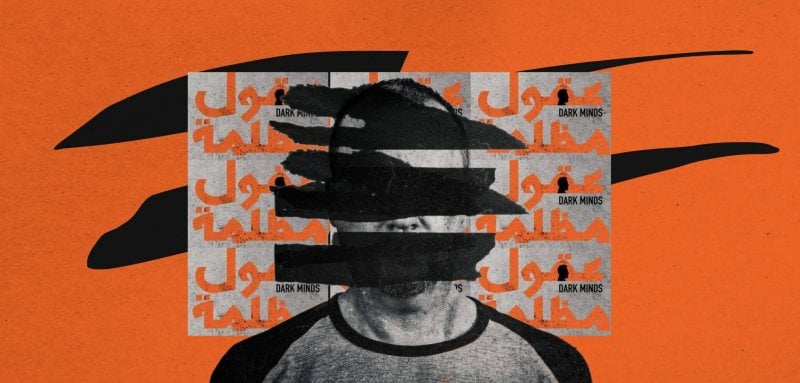Over the past decade, a global obsession has emerged with documentary and drama works that fall under the true crime genre. This fascination has led to a surge in productions that delve into serial killer stories, particularly on American streaming platforms. Statistics align with this trend, showing that the United States ranks first in the world in the number of serial killers, far surpassing other countries. However, this doesn’t mean that such crimes are exclusive to Western culture, and have no connection to our Arab world.
A quick search for the most infamous Arab serial killers reveals a list that includes names from long ago, such as the Egyptian sisters "Raya and Sakina," the Lebanese "Victor Awwad," and the Algerian "Boumahraz." Some of these stories have even made it to cinema and television screens, where they are retold in narratives that blend fact with fiction. Yet, despite the occurrence of these horrifying crimes in our Arab cities, they are often viewed as nothing more than mere exceptions, raising the question: Is this an awareness of their true scale, or a willful disregard of reality?
The docuseries Dark Minds, currently available on the Netflix platform, focuses on Arab serial killers and their cases
The true crime docuseries Dark Minds focuses on Arab serial killers and their cases
The docuseries Dark Minds, which is currently available on the Netflix platform, focuses on Arab serial killers and taps into the horror and shock evoked by their brutal acts. The early episodes are filled with variations of the phrase: “We've faced crises and disasters, but we've never seen a crime like this,” as the creators traveled through six Arab countries—Tunisia, Lebanon, Iraq, Egypt, Jordan, and Morocco. This production, which investigates the stories of serial killers who terrorized local communities, is the first of its kind in the region.
The faces of Arab serial killers
There are several reasons behind the fascination with watching documentaries and drama stories about serial killers. Some reasons seem obvious, such as curiosity and the desire to understand the killer's motivations and the contexts that led to their crimes. There's also the thrill of following investigations and connecting the dots between evidence and testimonies. Some carry deeper analyses, such as our attraction toward evil, as we try to discover our true nature and values through what we watch. The creators of Dark Minds aimed to craft a work that balances these various elements, even if the results vary from one episode to another.
The docuseries Dark Minds, which is currently available on the Netflix platform, focuses on Arab serial killers and taps into the horror and shock evoked by their brutal acts.
The series opens by capturing the nature of the locations where the crimes occurred, with brief references to the broader circumstances that shaped the reality of these countries, without delving deeply into the details. The events span from the 1980s to the present decade, covering two serial killers who share family ties, the Tanielian brothers, living in Beirut, a city of beauty and contradictions. George and Michel Tanielian, also known as The Taxi Driver Killers, turned the city’s nights into nightmares by killing taxi drivers and passengers. Another case involves “The Honeymoon Killers,” Bilal and Susan, a newlywed couple who were convicted of multiple murders in the Jordanian city of Zarqa during a period of significant societal changes.
The series also delves into the lives of serial killers, each of whom carried out actions that terrified the residents of the region and disturbed public opinion. In the episode “Nabeul's Nightmare,” we witness the quiet of the Tunisian city of Nabeul shattered by Naceur Damergi’s heinous crimes against children. In the episode “Doctor Death,” we feel the fear of the residents of the Iraqi city of Kirkuk after discovering that the doctor treating them, Louay al-Taei, was cold-bloodedly killing wounded security personnel at the behest of terrorist organizations. The episodes on “The Giza Killer” Gaddafi Farag and the Madiouna serial killer Abdelaziz al-Tijari also reveal the horrific nature of serial killings driven by greed.
The documentary paints portraits of these serial killers, relying on archival materials and exclusive footage, alongside interviews with those close to them and conversations with psychologists and criminologists. The series highlights a set of traits often present in international documentaries on serial killers, such as calmness and emotional detachment, as well as pious or humble displays that resonate with our Arab societies.
The docuseries also allows experts to analyze the personality disorders and pathologies of serial killers, particularly psychopathy, which heightens feelings of entitlement and erases any sense of guilt or empathy towards others. The episodes also examine the patterns of killing and the differences between impulsive and organized killers, occasionally exploring the significance of the killing method and what it reveals about the perpetrator.
 The Giza Serial Killer, The Giza Butcher episode from the true crime docuseries Dark Minds
The Giza Serial Killer, The Giza Butcher episode from the true crime docuseries Dark Minds
"The Giza Serial Killer" episode from the true crime docuseries Dark Minds
"All the components that create a criminal have their roots in the family," Dr. Yousry al-Dali states in the episode on serial killer Naceur Damergi, who was born in prison to a father who refused to recognize him as a son and later had a stepfather who sent him to reform school. Throughout its episodes, the documentary explores the environments in which the killers were raised, indicating in more than one instance that serial killers are victims of their childhoods, while also making it clear that this does not excuse their actions or absolve them of responsibility.
However, there are clear gaps between what the episodes reveal about each killer's past; what we know about the childhoods of the Nabeul and Madiouna serial killers differs from what is briefly mentioned about Gaddafi Farag, whose story was dramatized last year in the TV series "The Giza Serial Killer," where the creators linked his crimes to his family circumstances.
The creators of the true crime docuseries Dark Minds traveled through six Arab countries—Tunisia, Lebanon, Iraq, Egypt, Jordan, and Morocco to investigate the stories of serial killers who terrorized local communities.
As viewers, we try to grasp the motivations that led these killers to commit the unimaginable and search for common factors, beyond childhood, that these serial killers share. Discussions across different episodes suggest that the perpetrator often comes from a poor family, as is the case with the Tanielian Brothers and Louay al-Taei, though this seems to be a secondary reason in most cases. For instance, the brothers concoct stories about why they killed taxi drivers, while doctors attribute it to the fact that their younger brother, their mother's favorite, was a taxi driver. Meanwhile, the doctor who claimed 43 victims saw his criminal actions as a form of extreme jihad for the homeland. In other words, these episodes present us with models of malicious and malevolent minds whose crimes are difficult to understand clearly or trace back to logical causes.
Attempts at correction
With the overwhelming influx of true crime productions, film critics and mental health professionals have expressed reservations about how stories of serial killers are portrayed. Artistic treatments often attribute attractive qualities to the killer while marginalizing the victims' stories. This raises broad discussions about the responsibility producers must bear when dealing with such sensitive topics and the considerations that should be taken into account to create balanced content. The series Dark Minds attempts to apply these guidelines throughout its episodes, striving to avoid mistakes, but it occasionally stumbles in execution.
The creators of the series decided to adhere to a specific narrative structure; initially, the audience is introduced to the details of several crimes through a mix of filmed testimonies and reenacted scenes before the killer’s identity is revealed.
This structure helps to build an emotional charge against the serial killer and provides space to reflect on and try to comprehend the facts rather than getting caught up in sympathizing with the perpetrator, a pitfall into which various documentaries and dramas have fallen. For instance, series like the documentary “Conversations with a Killer: The Ted Bundy Tapes" and the series "Dahmer" have been criticized for glamorizing the killer and eliciting sympathy for them.
Dark Minds avoids this path, but it sometimes presents modest reenactments and occasionally uses actors who do not resemble the actual perpetrators. This causes some confusion for the viewer during specific episodes and creates a disconnect between the crimes being re-enacted and the image of the killer.
At the same time, the series allows us to listen to the victims' stories, feel the impact of their absence on their families, and understand how these crimes shook entire families, changing the course of their lives forever. These emotional segments are interwoven with interviews with journalists and civil activists who are well-versed in the details of the incidents and the outcomes of the investigations, though they are not directly connected to the cases themselves. This enriches the narrative and gives it depth, but the ability of these guests to narrate events in an engaging and compelling way varies. For example, journalist Riad Tawk discussed the Tanielian Brothers case in an informative, appealing, and spontaneous manner, while journalist Mohamed Bzourek tended to overuse heavy and polished phrases in a classic television style when speaking on the Louay al-Taei case.
 "The Honey Moon Killers" episode from the Arab serial killer docuseries Dark Minds
"The Honey Moon Killers" episode from the Arab serial killer docuseries Dark Minds
"The Honey Moon Killers" episode from the Arab serial killer docuseries Dark Minds
As mentioned earlier, the pacing of the narrative plays an important role in enhancing the level of excitement that viewers of this genre of documentaries seek. However, the series Dark Minds wastes much of its episode time on relatively long introductions about the horror of the crimes, repetitive statements about the nature of the killer, and recurring visual shots. The series needed more conciseness in presenting the facts to maintain the vitality of this important work.
Questions and a missed opportunity
In a series that delves into the circumstances of crimes, the investigations, the pursuit of the killers, and their trials, a clash with the justice systems in our countries was inevitable. The creators of Dark Minds pointed out the slow response of security forces in connecting the crimes, which allowed the killer to evade capture multiple times and claim more lives. They also raised bold questions, such as those posed in the Tanielian Brothers case, about the effectiveness of the death penalty—whether it serves as a deterrent or simply provides the perpetrator with an easy escape. Another question was discussed in the Louay al-Taei case regarding what happens during trials when the media is barred from attending the sessions.
The creators of the true-crime docuseries Dark Minds decided to adhere to a specific narrative structure; initially, the audience is introduced to the details of several crimes through a mix of filmed testimonies and reenacted scenes before the serial killer’s identity is revealed.
However, the creators avoided a direct confrontation when the opportunity arose in the story of the killer couple, Bilal and Susan. Jordanian police investigations indicated that the couple collaborated in the robbery and murder of 12 victims, while their lawyer claimed they were responsible for only one crime and that their confessions to the other murders were obtained illegally under duress and torture.
 "Nabeul’s Nightmare" episode from the Arab serial killer docuseries Dark Minds
"Nabeul’s Nightmare" episode from the Arab serial killer docuseries Dark Minds
"Nabeul’s Nightmare" episode from the Arab serial killer docuseries Dark Minds
Four years ago, Al Jazeera Documentary presented a film about the incident under the title “The Killer Couple,” which fueled doubts about the fabrication of charges against them. The narrative structure was built from the start on presenting the lawyer's statements against the accounts of security officials, incorporating comments from journalist Rana Husseini, who followed the case in the media and expressed astonishment at the way the security forces uncovered the crimes and how the trials proceeded. The film also pointed to the criticisms directed by Amnesty International towards the judiciary at that time, highlighting the possibility of a mistake in one of the cases in which the couple was convicted.
In contrast, the Dark Minds episode featuring their story followed the same approach as the other episodes. It began by discussing the crimes with quick hints that the tools used in the murders were varied and that there was no clear connection between the incidents. However, the experts' words were followed by scientific explanations of these phenomena, dispelling any doubts that might arise in the viewer's mind. Midway through the episode, the lawyer suddenly appears to discuss the couple, their past, and the possibility of their innocence in most of the crimes, without diminishing the presence of voices affirming their guilt. In the end, the screen displays a message stating that the case remains controversial in public opinion and that the truth will never be known.
This approach seems like a safe choice; it doesn't ignore the complex details surrounding the case and doesn't favor one perspective over another, while also avoiding presenting a similar style to that of the previous documentary film. However, it might have been beneficial for the episode's narrative to give more attention to the possibility that security forces could fabricate charges to resolve such crimes, especially since wrongful convictions are a significant topic explored in true crime documentaries like "The Innocence Files."
In conclusion, the creators of Dark Minds present episodes worthy of watching and analyzing from multiple perspectives. The crimes might resemble what we see in international productions, but they cannot be separated from the societies that experienced them. Therefore, we look forward to more in-depth productions in the region that are capable of revealing what we often prefer to keep hidden from view.
Raseef22 is a not for profit entity. Our focus is on quality journalism. Every contribution to the NasRaseef membership goes directly towards journalism production. We stand independent, not accepting corporate sponsorships, sponsored content or political funding.
Support our mission to keep Raseef22 available to all readers by clicking here!
Interested in writing with us? Check our pitch process here!



